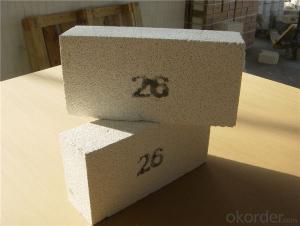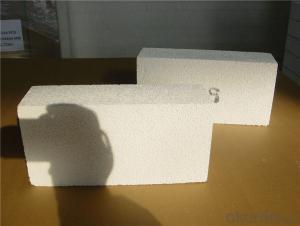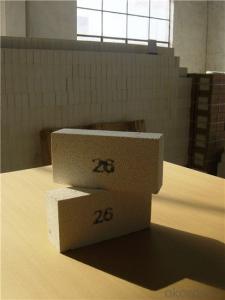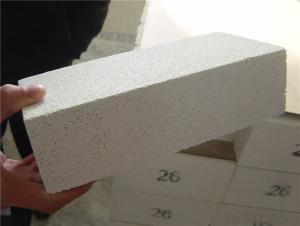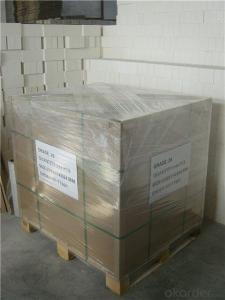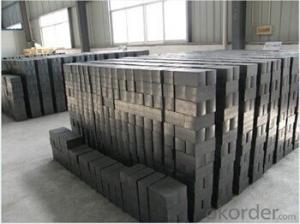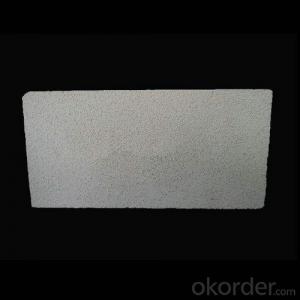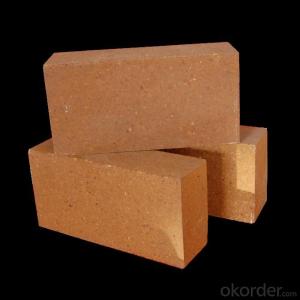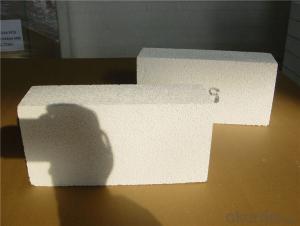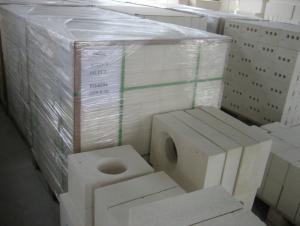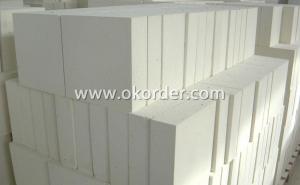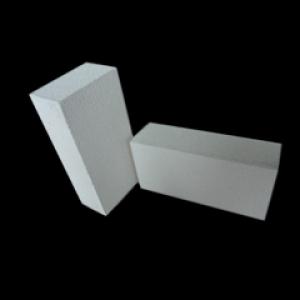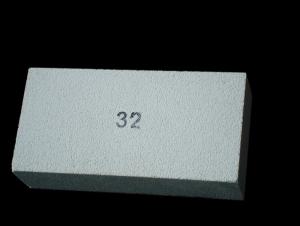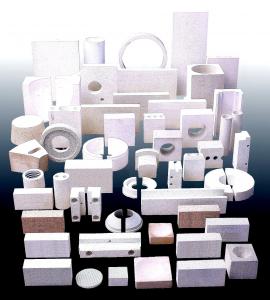Thermal Insulation Fire Clay Brick , Coke Ovens Firebrick Refractory
- Loading Port:
- Shanghai
- Payment Terms:
- TT OR LC
- Min Order Qty:
- 1 m.t.
- Supply Capability:
- 1000 m.t./month
OKorder Service Pledge
OKorder Financial Service
You Might Also Like
Thermal Insulation Fire Clay Brick
Refractory brick is a block of refractory ceramic material used in lining furnaces, kilns, fireboxes, and fireplaces.
We provide high quality Refractory Fire Bricks that are used on wide range in the various industries like Cement, Glass and Steel. Refractory Fire Bricks are provided as per the quantity and specifications required by the customers. We provide an extensive range of Refractory Fire Bricks at reasonable prices that depend upon the quantity ordered.
Application
Insulating Fire Brick are used for the lining of converter, alternating current arc furnace, direct Current arc furnace and the ladle slag line, etc.
Company Advantage
(1)Long Insulating Fire Brick manufacture history: 25 years manufacturer
(2)Advanced equipment
(3)Diversification of production standards: ISO ANSI FEPA JIS ASTM
(4)Flexible payment: T/T L/C D/P D/A
(5)Professional marketing team and after-sale service
Insulating Fire Brick main feature:
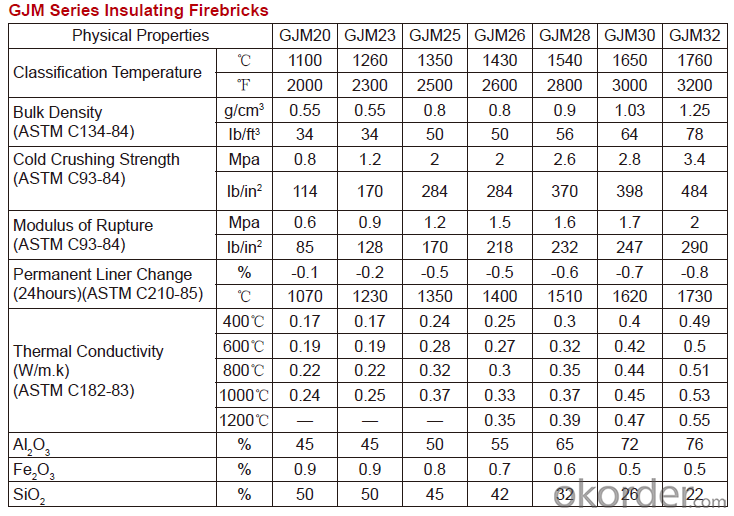
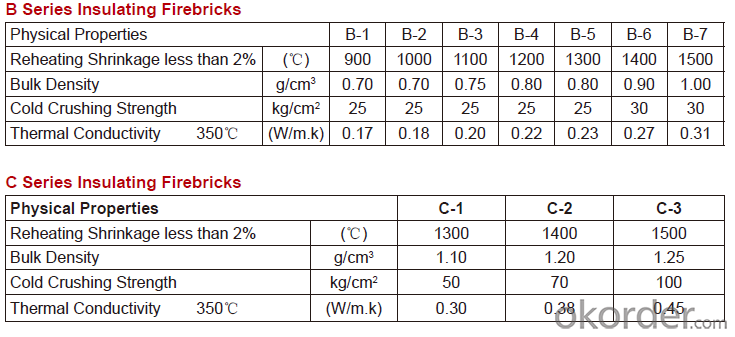
Equipment
1 unit of Ceramic Abrasive (SG Abrasive) pilot production line
2 units of Compact grain Abrasive pilot production lines
1 unit of high-end coated abrasives (abrasive cloth) production line
2 units of Boron Carbide production lines
3 large flexible crushing and sieving lines for grit production lines
6 units of 5000KVA-10000KVA dumping type electric arc furnaces for Brown Fused Alumina fusion
Q1 What’s the transport method?
A1 FCL delivery goods with wooden pallet or wooden case by sea; If LCL delivery, must with wooden case; Sometimes need open top, flat rack or bulk cargo.
Q2 What’s the required payment term?
A2 Generally 30% TT as the prepayment, 70% TT before delivery. If need, 100% Irrevocable Letter of Credit or negotiation.
Q3 Which country are our products exported to?
A3 Apart from entire Chinese market, the US, Russia, Japan, Korea, Australia and some Southeast Asian Nations.
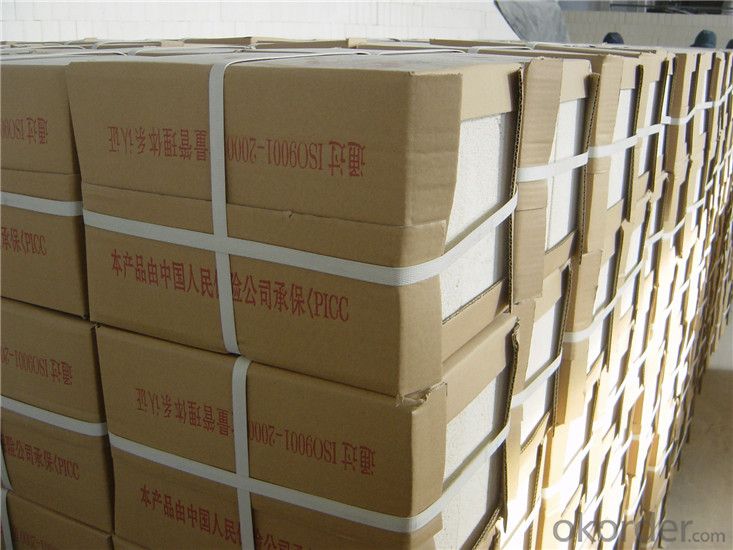
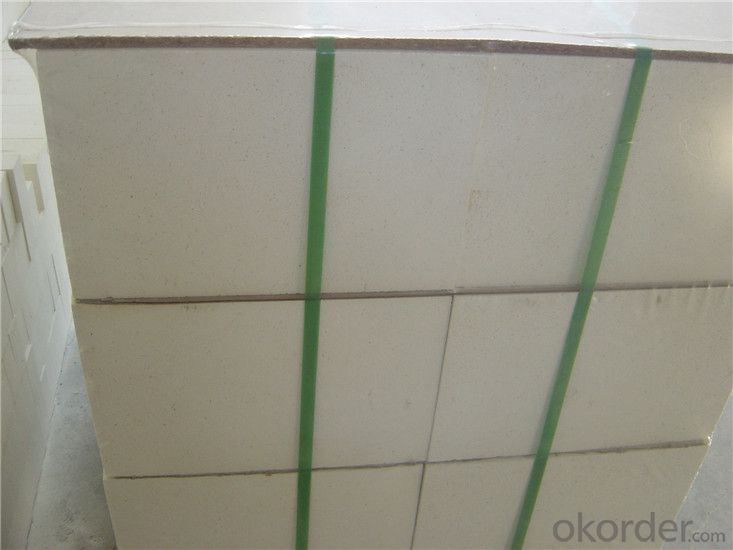
- Q:Can insulating fire bricks be used in the construction of hearth furnaces?
- Indeed, hearth furnaces can absolutely incorporate insulating fire bricks. These remarkable bricks are specifically engineered to possess a low thermal conductivity, rendering them exceptionally suitable for scenarios necessitating heat insulation. By utilizing insulating fire bricks in the construction of hearth furnaces, where elevated temperatures prevail, the retention of heat within the furnace is facilitated, thereby enhancing energy efficiency. Furthermore, their implementation minimizes heat transfer, thereby offering thermal protection to nearby structures. Moreover, owing to their lightweight nature and ease of handling, insulating fire bricks are remarkably convenient for construction purposes. All in all, incorporating insulating fire bricks into the construction of hearth furnaces elevates their performance and contributes to a more efficient and effective heating process.
- Q:Can insulating fire bricks be installed in both industrial and residential settings?
- Yes, insulating fire bricks can be installed in both industrial and residential settings. These bricks are designed to withstand high temperatures and provide excellent insulation, making them suitable for a variety of applications. In industrial settings, insulating fire bricks are commonly used in furnaces, kilns, and ovens, where they help to conserve energy and maintain consistent temperatures. In residential settings, they can be used in fireplaces, wood-burning stoves, and pizza ovens, where they improve heat retention and enhance safety. Insulating fire bricks are versatile and durable, making them a reliable choice for both industrial and residential installations.
- Q:Can insulating fire bricks be used for insulation in heat exchangers?
- Yes, insulating fire bricks can be used for insulation in heat exchangers. Insulating fire bricks are made from a lightweight refractory material that has excellent thermal insulation properties. They have low thermal conductivity, which means they can effectively reduce heat transfer from one side of the heat exchanger to the other. This helps to maintain the desired temperature within the heat exchanger and prevents heat loss to the surroundings. Additionally, insulating fire bricks are resistant to high temperatures and can withstand thermal shocks, making them suitable for the harsh conditions often found in heat exchangers. Overall, using insulating fire bricks for insulation in heat exchangers can improve energy efficiency, reduce heat loss, and enhance the overall performance of the system.
- Q:Can insulating fire bricks be used in ladles?
- Yes, insulating fire bricks can be used in ladles. Insulating fire bricks are designed to withstand high temperatures and provide thermal insulation. They are commonly used in applications where there is a need to maintain or control high temperatures, such as in furnaces, kilns, and ladles. Ladles are used for pouring and transferring molten metal or other materials, and the use of insulating fire bricks in ladles helps to minimize heat loss and improve energy efficiency. Additionally, insulating fire bricks can also provide a protective barrier against chemical reactions and erosion caused by the molten materials, making them suitable for ladle applications.
- Q:Are insulating fire bricks resistant to vibration or seismic activity?
- Yes, insulating fire bricks are typically resistant to vibration or seismic activity. They are designed to withstand high temperatures and provide insulation, which also makes them relatively stable and resistant to external forces such as vibrations or seismic activity.
- Q:Is it possible to recycle broken insulating fire bricks?
- Yes, it is possible to recycle broken insulating fire bricks. These bricks can be crushed and used as aggregate in the production of new bricks or other construction materials. Additionally, they can be ground into a fine powder and used as a raw material in the manufacturing of refractory products. Recycling broken insulating fire bricks helps reduce waste and conserve resources.
- Q:Are insulating fire bricks chemically resistant?
- Yes, insulating fire bricks are chemically resistant. They are composed of high-temperature materials that can withstand harsh chemical environments without undergoing significant chemical reactions or degradation. This resistance makes them suitable for various industrial applications where exposure to chemicals is a concern.
- Q:Can insulating fire bricks be used for insulation in steel mills?
- Yes, insulating fire bricks can be used for insulation in steel mills. Insulating fire bricks are made from lightweight refractory materials that have excellent insulating properties and can withstand high temperatures. They are designed to minimize heat transfer and maintain the desired temperature inside the furnace or kiln. In steel mills, these bricks can be used to insulate the walls, floors, and roofs of the furnaces, ladles, and other equipment. This insulation helps to reduce heat losses, improve energy efficiency, and ensure consistent and controlled heating processes. Additionally, insulating fire bricks can provide thermal stability and protect the steel mill equipment from excessive heat, contributing to longer equipment lifespan and reduced maintenance costs.
- Q:Are insulating fire bricks suitable for insulation in boilers?
- Yes, insulating fire bricks are suitable for insulation in boilers. Insulating fire bricks are made from lightweight materials such as clay and alumina, which have excellent insulating properties. They have a low thermal conductivity, meaning they are effective at preventing heat transfer and can help to significantly reduce heat loss in boilers. Additionally, insulating fire bricks are resistant to high temperatures, making them suitable for use in boilers where high heat is generated. They are also durable and can withstand the harsh conditions inside a boiler, including exposure to intense heat and corrosive gases. Overall, insulating fire bricks are a popular choice for boiler insulation due to their thermal efficiency and ability to withstand high temperatures.
- Q:Can insulating fire bricks be used in the construction of brick kilns?
- Yes, insulating fire bricks can be used in the construction of brick kilns. Insulating fire bricks are specifically designed to have high thermal resistance, which makes them ideal for applications where insulation is required. In brick kilns, insulating fire bricks can be used to line the walls, floor, and roof of the kiln, helping to retain heat and improve energy efficiency. These bricks are capable of withstanding high temperatures and can provide insulation against the heat generated during the firing process. Additionally, insulating fire bricks can also help reduce heat loss, resulting in faster and more efficient firing cycles. Overall, using insulating fire bricks in the construction of brick kilns can enhance their performance and contribute to more effective and sustainable kiln operation.
1. Manufacturer Overview |
|
|---|---|
| Location | |
| Year Established | |
| Annual Output Value | |
| Main Markets | |
| Company Certifications | |
2. Manufacturer Certificates |
|
|---|---|
| a) Certification Name | |
| Range | |
| Reference | |
| Validity Period | |
3. Manufacturer Capability |
|
|---|---|
| a)Trade Capacity | |
| Nearest Port | |
| Export Percentage | |
| No.of Employees in Trade Department | |
| Language Spoken: | |
| b)Factory Information | |
| Factory Size: | |
| No. of Production Lines | |
| Contract Manufacturing | |
| Product Price Range | |
Send your message to us
Thermal Insulation Fire Clay Brick , Coke Ovens Firebrick Refractory
- Loading Port:
- Shanghai
- Payment Terms:
- TT OR LC
- Min Order Qty:
- 1 m.t.
- Supply Capability:
- 1000 m.t./month
OKorder Service Pledge
OKorder Financial Service
Similar products
New products
Hot products
Related keywords
